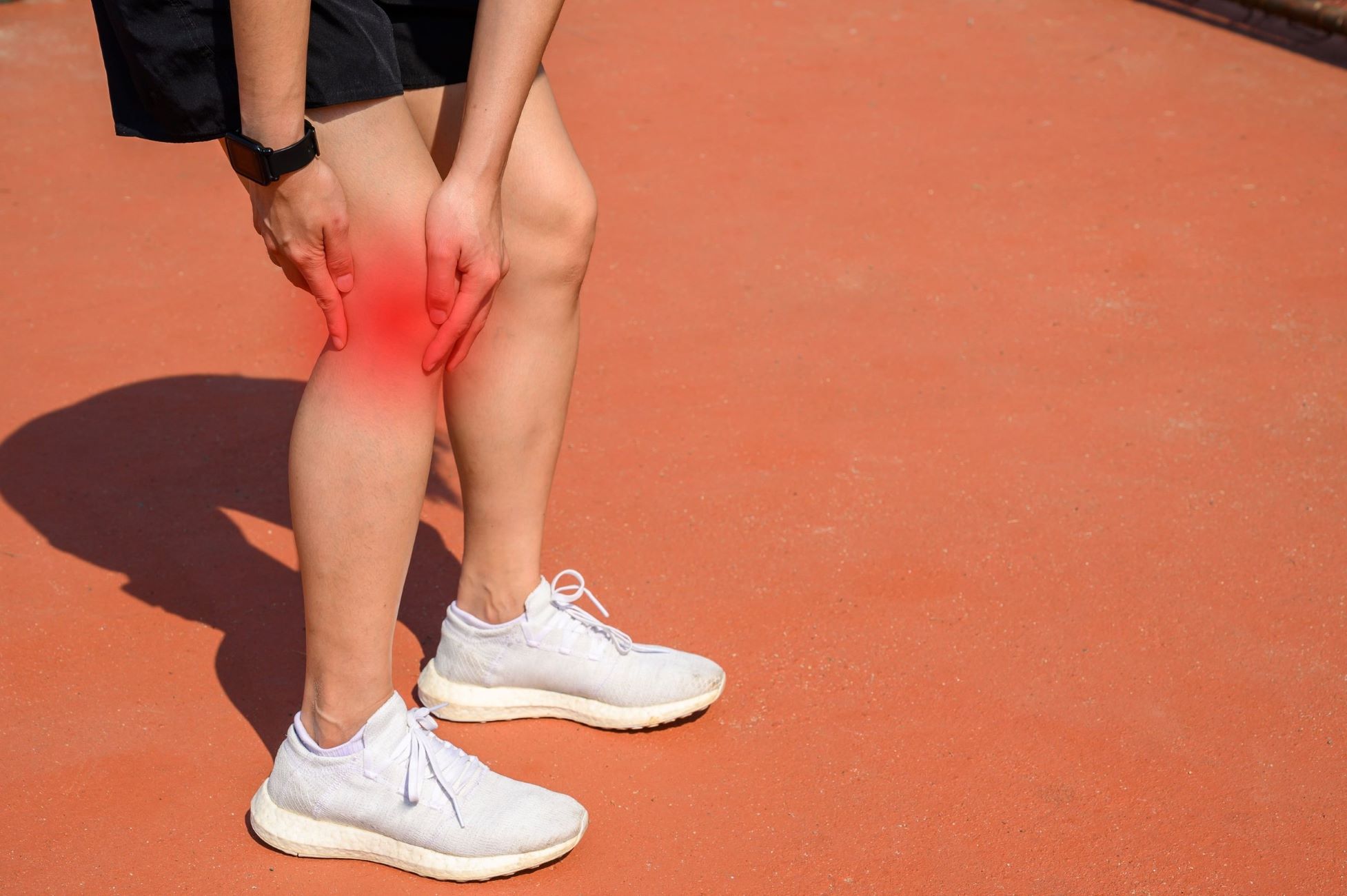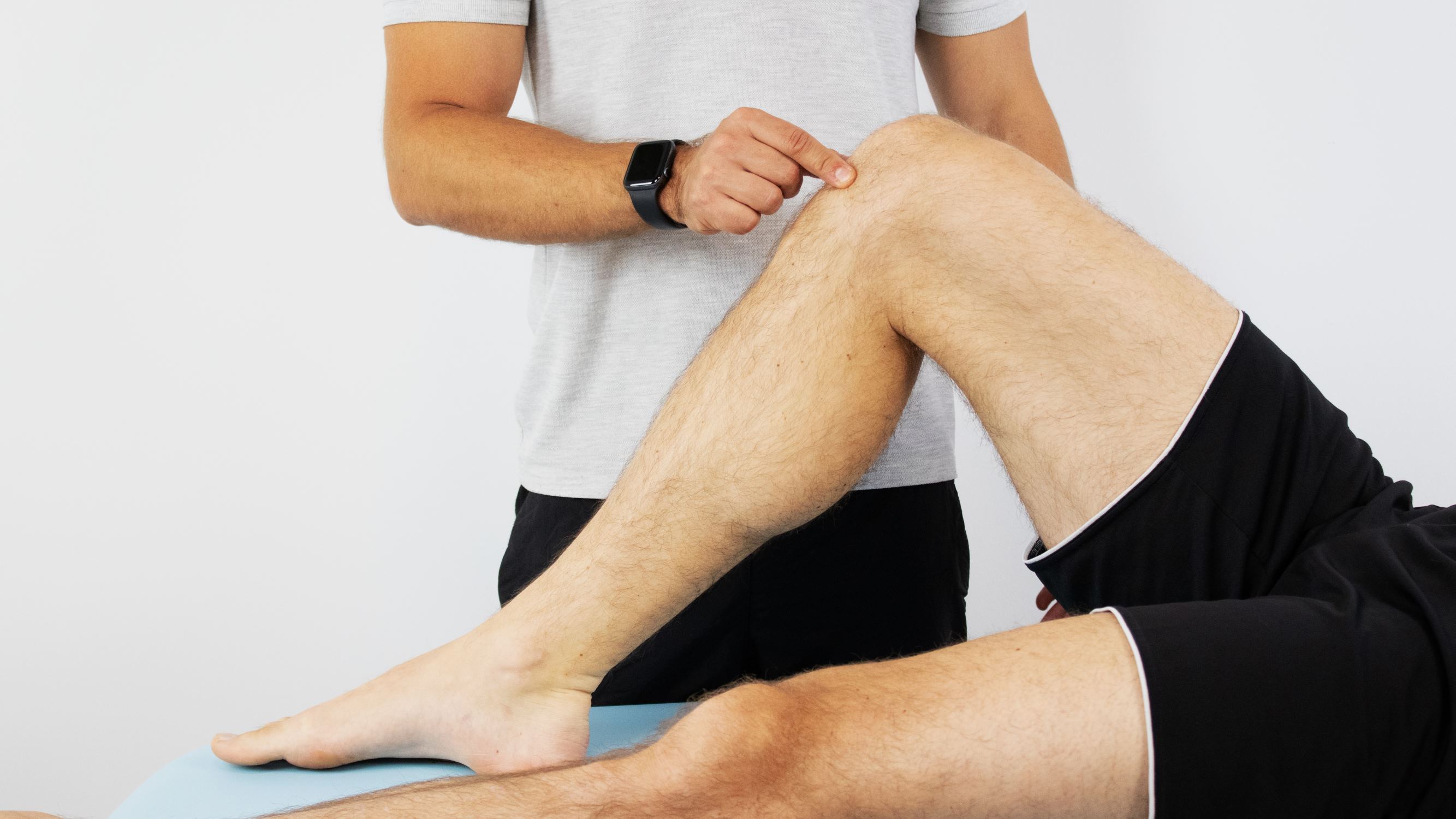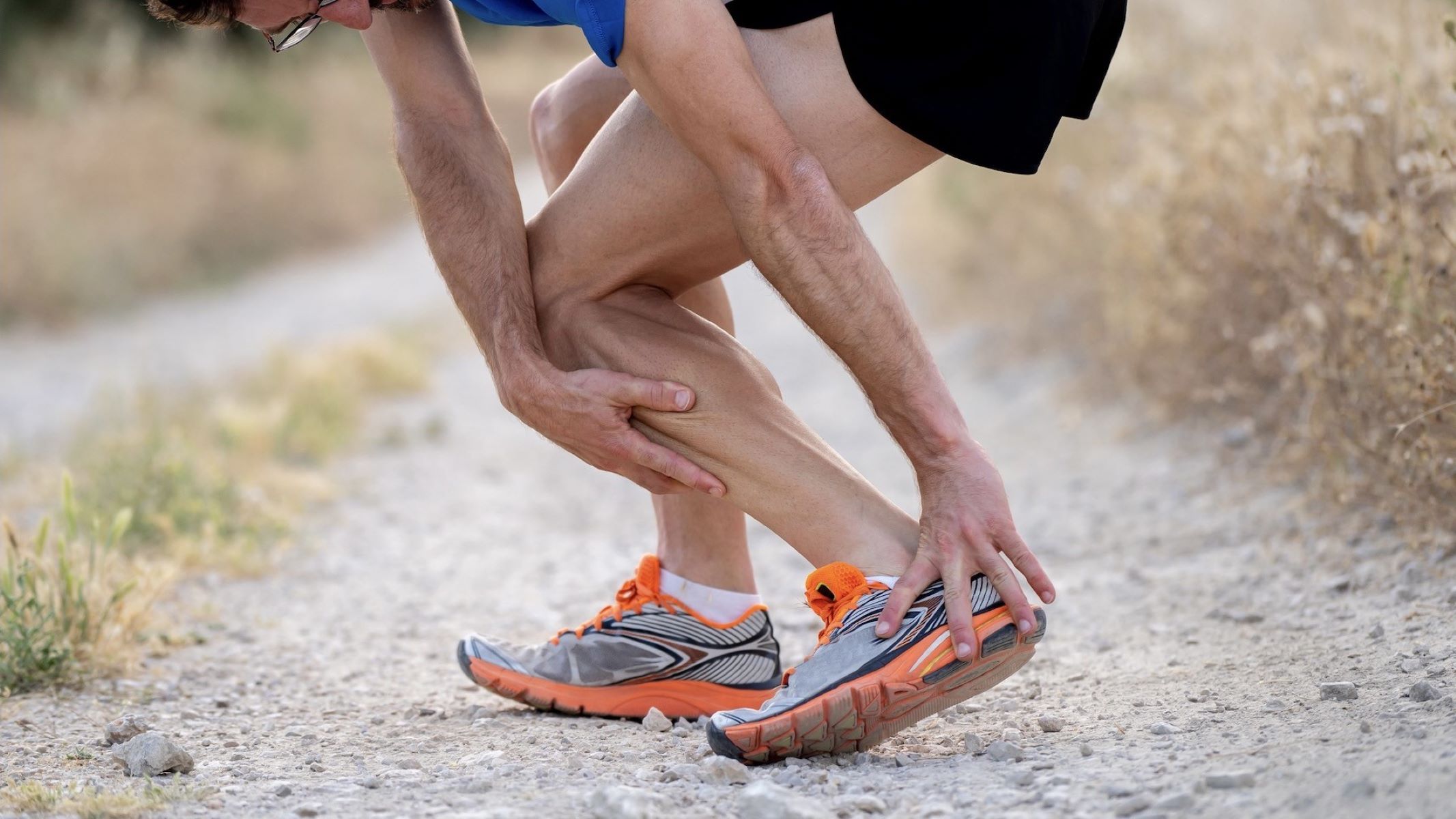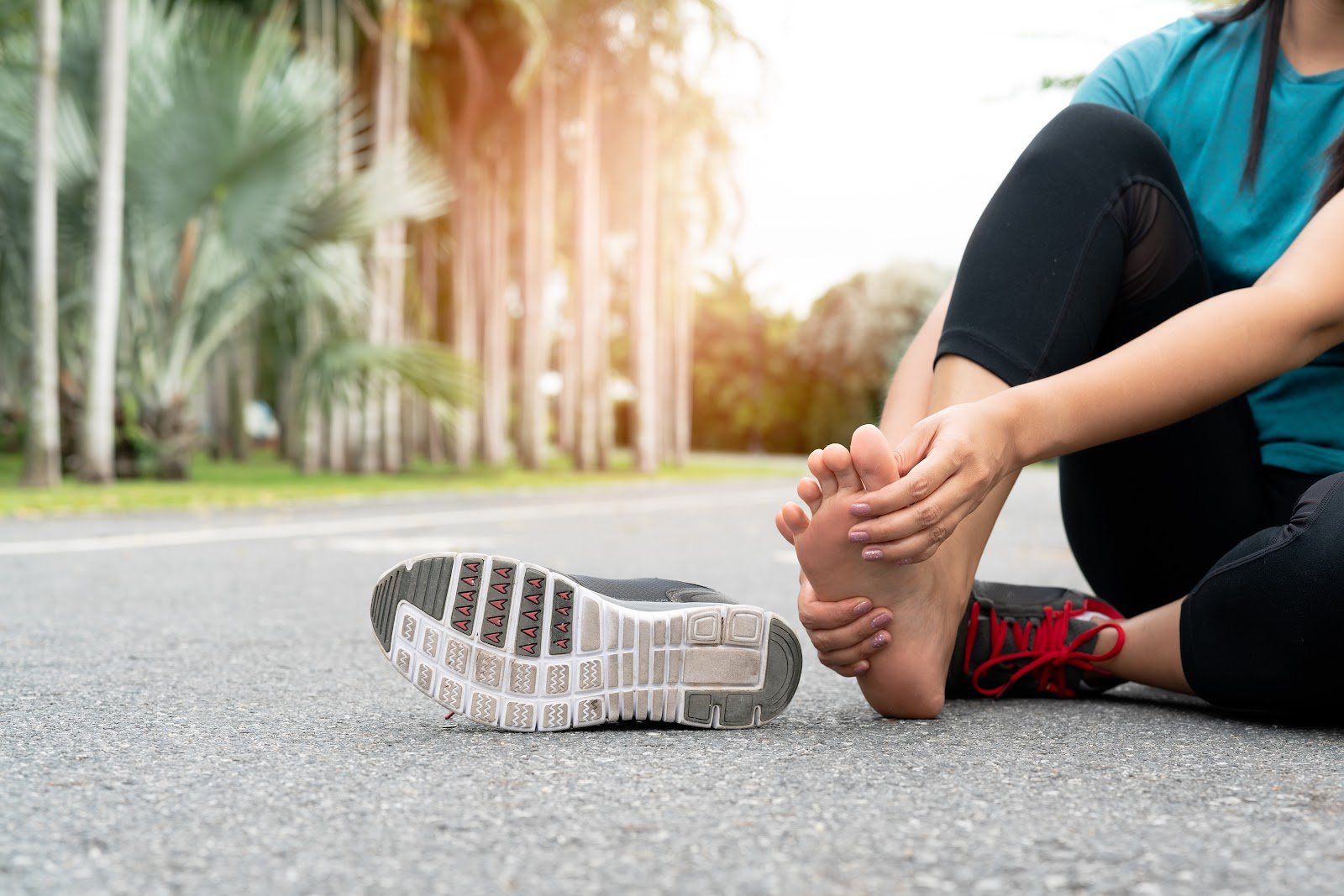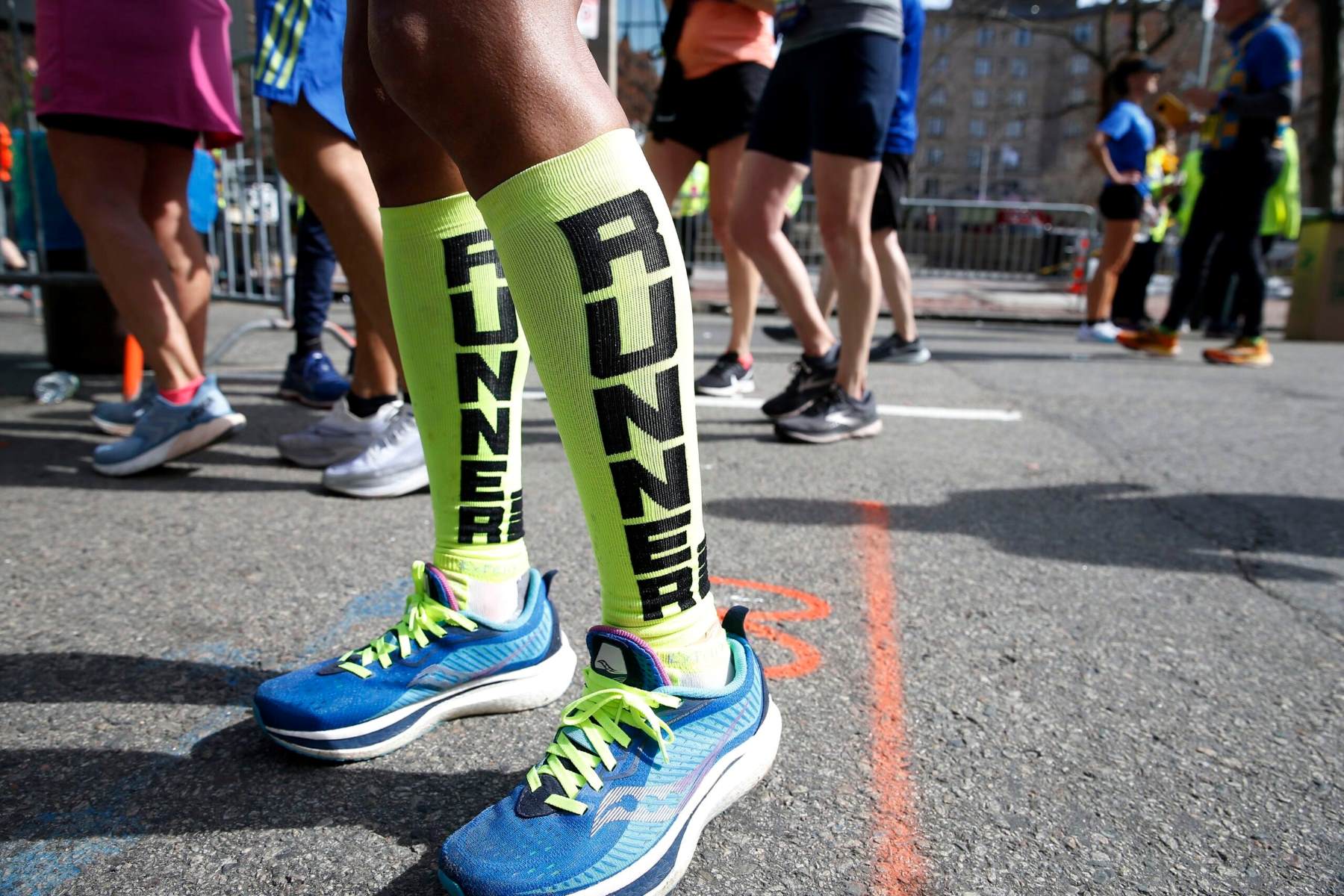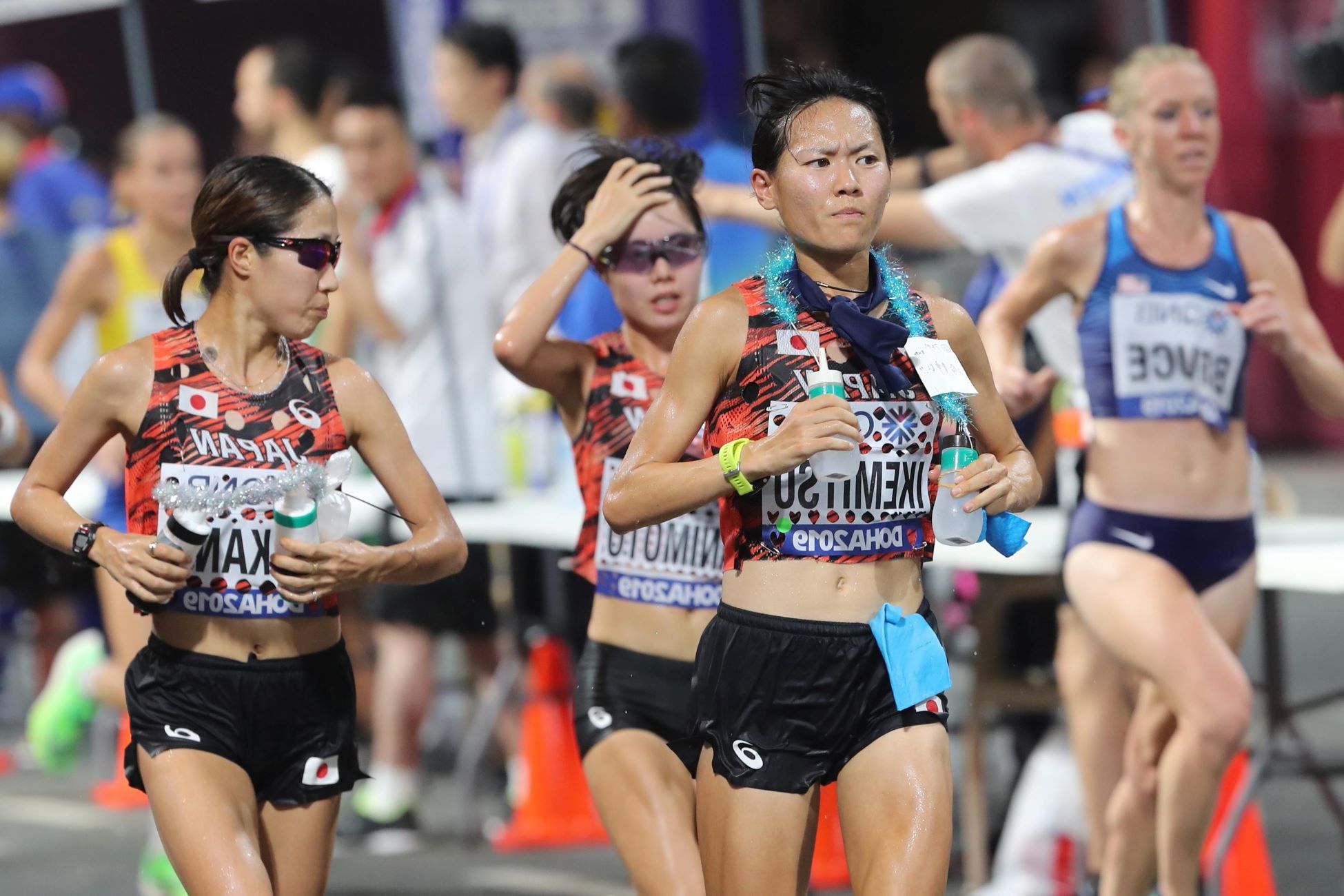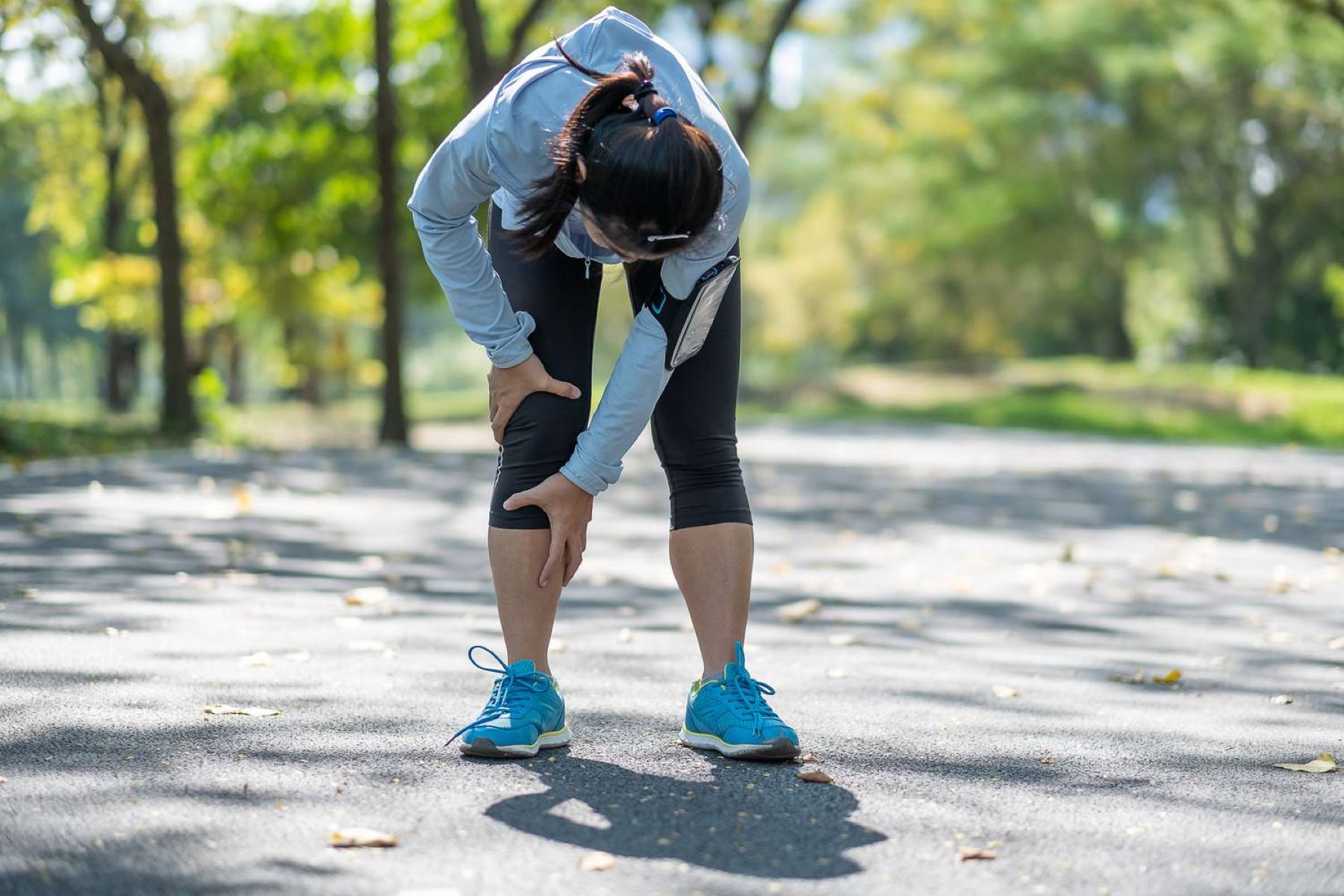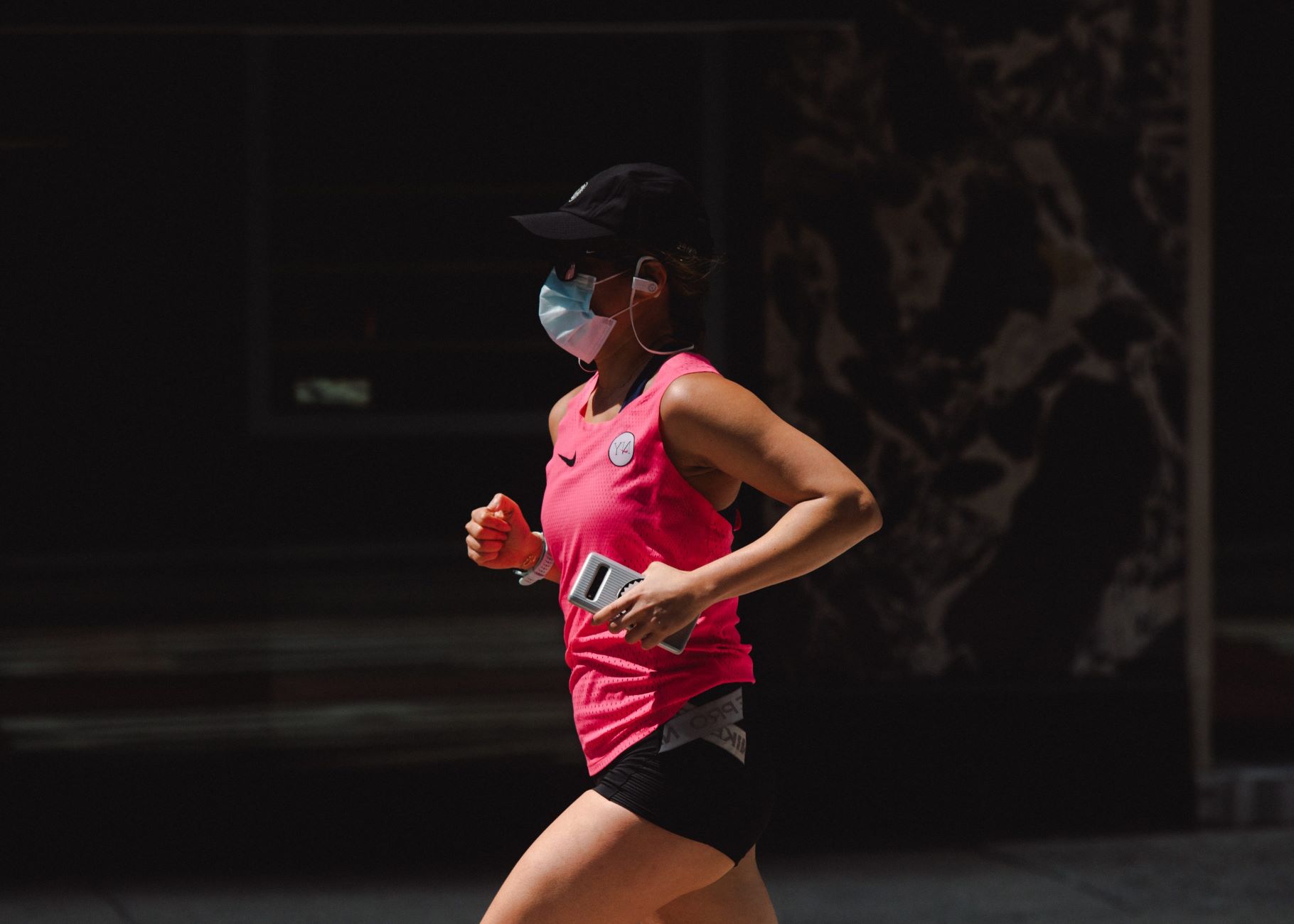Home>Health & Nutrition>All You Need To Know About Running With Hay Fever


Health & Nutrition
All You Need To Know About Running With Hay Fever
Published: February 20, 2024
Discover how to manage hay fever symptoms while running with our expert tips on Health & Nutrition. Stay active and healthy, even with seasonal allergies!
(Many of the links in this article redirect to a specific reviewed product. Your purchase of these products through affiliate links helps to generate commission for Therunningadvisor.com, at no extra cost. Learn more)
Table of Contents
Understanding Hay Fever
Hay fever, also known as allergic rhinitis, is a common allergic condition that affects millions of people worldwide. It is typically triggered by allergens such as pollen, dust mites, pet dander, or mold spores. When individuals with hay fever come into contact with these allergens, their immune system overreacts, leading to a range of bothersome symptoms.
The body's immune response to these allergens involves the release of histamine and other chemicals, which cause inflammation and irritation in the nasal passages, throat, and eyes. This inflammatory response is what leads to the classic symptoms of hay fever, including sneezing, congestion, runny nose, itchy eyes, and throat irritation.
Hay fever can be further categorized into seasonal and perennial types. Seasonal hay fever is typically triggered by outdoor allergens such as tree, grass, and weed pollen, and tends to flare up during specific times of the year when these allergens are prevalent. On the other hand, perennial hay fever is caused by indoor allergens like dust mites, pet dander, and mold, and can occur year-round.
Understanding the triggers and underlying mechanisms of hay fever is crucial for individuals, especially runners, as it can significantly impact their outdoor activities. By recognizing the symptoms and understanding the factors that exacerbate hay fever, individuals can take proactive measures to manage and alleviate its effects, allowing them to continue enjoying their running routines without undue discomfort.
Read more: All You Need To Know About Hamstring Strains
Symptoms of Hay Fever
Hay fever, also known as allergic rhinitis, manifests through a range of distressing symptoms that can significantly impact an individual's well-being, particularly during outdoor activities like running. These symptoms typically arise when the immune system overreacts to allergens, triggering a cascade of inflammatory responses in the body. The most common symptoms of hay fever include:
-
Sneezing: Individuals with hay fever often experience frequent and uncontrollable bouts of sneezing, which can be disruptive and exhausting, especially during physical activities like running.
-
Nasal Congestion: The inflammation of the nasal passages caused by hay fever can lead to congestion, making it difficult to breathe freely through the nose. This can be particularly challenging for runners who rely on efficient breathing during their workouts.
-
Runny Nose: Hay fever commonly results in a runny or "drippy" nose, which can be bothersome and uncomfortable, especially when combined with physical exertion.
-
Itchy, Watery Eyes: The eyes are often affected by hay fever, becoming itchy, watery, and sensitive to light. This can impair vision and cause significant discomfort while running outdoors.
-
Throat Irritation: Many individuals with hay fever experience throat irritation, which can manifest as a scratchy or sore throat, making breathing and swallowing uncomfortable.
-
Fatigue: The combination of persistent symptoms, particularly disrupted sleep due to nasal congestion and sneezing, can lead to fatigue and reduced energy levels, impacting a runner's performance and motivation.
-
Headache: Hay fever can trigger headaches due to sinus pressure and congestion, further adding to the discomfort experienced during physical activities.
-
Impaired Sense of Smell and Taste: In some cases, hay fever can temporarily impair the sense of smell and taste, affecting an individual's overall sensory experience during running and other daily activities.
These symptoms can vary in severity and may fluctuate depending on the individual's sensitivity to allergens and the environmental conditions. It's important for runners and individuals with hay fever to recognize these symptoms and take proactive measures to manage them effectively, allowing for a more comfortable and enjoyable running experience.
Impact of Hay Fever on Running
Hay fever can exert a significant impact on the running experience, affecting both the physical and mental aspects of the activity. The symptoms of hay fever, such as nasal congestion, sneezing, and itchy eyes, can impede breathing, hinder concentration, and diminish overall performance during running sessions.
Nasal congestion, a prevalent symptom of hay fever, can obstruct the airways, making it challenging for runners to breathe freely and efficiently. This can lead to increased fatigue and reduced endurance, ultimately affecting the ability to sustain optimal running pace and distance. Additionally, the persistent need to pause for sneezing or to address discomfort from watery eyes can disrupt the flow and rhythm of a run, impacting the overall experience and potentially diminishing the enjoyment derived from the activity.
Furthermore, the mental aspect of running can also be affected by hay fever. The discomfort and frustration caused by hay fever symptoms can detract from the mental clarity and focus that are essential for a successful and satisfying run. It can be mentally draining to contend with symptoms such as itchy eyes, a runny nose, and throat irritation while striving to maintain motivation and a positive mindset during a run.
Moreover, hay fever can disrupt sleep patterns due to symptoms like nasal congestion and sneezing, leading to fatigue and reduced energy levels, which can further impact a runner's performance and enthusiasm for running.
In addition to the immediate impact on running performance, the cumulative effect of enduring hay fever symptoms during runs can potentially dampen the overall enjoyment and satisfaction derived from the activity. The discomfort and distraction caused by hay fever can detract from the sense of accomplishment and well-being that runners often seek to attain through their physical pursuits.
Recognizing the substantial impact of hay fever on running is crucial for individuals who aim to maintain their running routines while effectively managing their allergic symptoms. By understanding the challenges posed by hay fever and implementing strategies to mitigate its effects, runners can strive to optimize their running experience and continue to derive fulfillment from this invigorating form of physical activity.
Tips for Running with Hay Fever
Running with hay fever can present unique challenges, but with the right approach, individuals can effectively manage their symptoms and continue to enjoy their running routines. Here are some valuable tips to help runners navigate the impact of hay fever:
-
Check Pollen Counts: Stay informed about pollen forecasts in your area, and plan your runs during times when pollen levels are lower. Early mornings or evenings may offer a reprieve from peak pollen hours.
-
Choose Running Routes Wisely: Opt for routes that minimize exposure to potential allergens. Consider running in urban areas or near bodies of water, as these environments tend to have lower pollen concentrations compared to wooded or grassy areas.
-
Wear Sunglasses: Protect your eyes from pollen and other airborne irritants by wearing wraparound sunglasses during your runs. This can help reduce the risk of itchy, watery eyes and improve overall comfort.
-
Use Nasal Filters or Masks: Consider using nasal filters or masks designed to filter out pollen and other allergens while running. These can be particularly beneficial on high pollen days or during peak allergy seasons.
-
Shower and Change Clothes After Running: After completing your run, promptly shower and change into fresh, clean clothes to remove any pollen that may have accumulated on your skin and clothing during the run.
-
Consider Indoor Workouts: On days when pollen counts are exceptionally high, consider indoor alternatives such as treadmill running or indoor cycling to minimize exposure to outdoor allergens.
-
Stay Hydrated: Proper hydration can help alleviate some hay fever symptoms, such as throat irritation. Carry a water bottle during your runs and ensure you stay adequately hydrated.
-
Consult an Allergist: If hay fever significantly impacts your running performance, consider consulting an allergist for personalized advice and potential treatment options, such as allergy shots or prescription medications.
-
Use Saline Nasal Sprays: Before and after running, use saline nasal sprays to help clear out any pollen or allergens that may have entered your nasal passages, reducing congestion and discomfort.
-
Monitor Symptoms: Pay attention to how your body responds during and after runs. If certain environmental conditions consistently exacerbate your hay fever symptoms, make adjustments to your running routine accordingly.
By implementing these practical tips, runners can proactively manage their hay fever symptoms and minimize the impact on their running experience. With careful planning and proactive measures, individuals can continue to pursue their passion for running while effectively managing their allergic rhinitis.
Medication and Treatment Options
When hay fever symptoms significantly interfere with a runner's ability to enjoy their workouts, seeking appropriate medication and treatment options becomes essential. Several effective strategies can help alleviate the discomfort and impact of hay fever, allowing individuals to continue their running routines with greater ease.
-
Antihistamines: Over-the-counter or prescription antihistamines can effectively reduce sneezing, itching, and runny nose associated with hay fever. Non-drowsy formulations are available, making them suitable for use before running without causing excessive fatigue.
-
Nasal Corticosteroids: These nasal sprays help alleviate nasal congestion, runny nose, and sneezing by reducing inflammation in the nasal passages. Regular use can provide long-term relief from hay fever symptoms, making them a valuable option for runners seeking consistent management.
-
Decongestants: Oral or nasal decongestants can provide temporary relief from nasal congestion, enabling improved breathing during runs. However, caution should be exercised with prolonged use, as they may lead to rebound congestion.
-
Allergy Shots (Immunotherapy): For individuals with severe hay fever symptoms, allergy shots can be a transformative treatment option. By gradually desensitizing the immune system to specific allergens, allergy shots can significantly reduce the severity of hay fever over time, potentially leading to long-term symptom relief.
-
Eye Drops: Antihistamine or mast cell stabilizer eye drops can effectively alleviate itchy, watery eyes caused by hay fever, enhancing visual comfort during outdoor runs.
-
Leukotriene Modifiers: These medications can help manage hay fever symptoms, particularly when asthma is also a concern. By targeting inflammatory pathways, leukotriene modifiers can provide comprehensive relief for individuals with overlapping respiratory conditions.
-
Alternative Therapies: Some individuals find relief from hay fever symptoms through alternative therapies such as acupuncture, herbal supplements, or nasal irrigation. While the efficacy of these approaches may vary, they can be explored under the guidance of a healthcare professional.
It's important for runners to consult with a healthcare provider to determine the most suitable medication and treatment options based on their specific symptoms, medical history, and running routine. By addressing hay fever symptoms proactively, individuals can optimize their running experience and pursue their fitness goals with greater comfort and enjoyment.
Prevention and Management of Hay Fever while Running
Effectively preventing and managing hay fever while running is essential for individuals who seek to maintain their outdoor fitness activities without undue discomfort. By implementing proactive measures and strategic adjustments, runners can significantly mitigate the impact of hay fever and continue to enjoy their running routines.
Prevention Strategies
-
Monitor Pollen Counts: Stay informed about local pollen forecasts and plan running sessions during periods of lower pollen levels. Early mornings or evenings may offer a reprieve from peak pollen hours, reducing exposure during outdoor runs.
-
Strategic Route Selection: Choose running routes that minimize exposure to potential allergens. Urban areas or locations near bodies of water tend to have lower pollen concentrations compared to wooded or grassy areas, offering a more favorable environment for running with hay fever.
-
Protective Eyewear: Wear wraparound sunglasses during runs to shield the eyes from pollen and other airborne irritants, reducing the risk of itchy, watery eyes and improving overall visual comfort.
-
Nasal Filters or Masks: Consider using nasal filters or masks designed to filter out pollen and other allergens while running, particularly on high pollen days or during peak allergy seasons.
Management Strategies
-
Post-Run Hygiene: After completing a run, promptly shower and change into fresh, clean clothes to remove any pollen that may have accumulated on the skin and clothing during the outdoor activity.
-
Indoor Alternatives: On days with exceptionally high pollen counts, consider indoor workout options such as treadmill running or indoor cycling to minimize exposure to outdoor allergens while maintaining fitness routines.
-
Hydration: Proper hydration can help alleviate some hay fever symptoms, such as throat irritation. Carrying a water bottle during runs and ensuring adequate hydration is essential for managing discomfort.
-
Consultation with Allergist: If hay fever significantly impacts running performance, seeking guidance from an allergist for personalized advice and potential treatment options, such as allergy shots or prescription medications, can be beneficial.
-
Saline Nasal Sprays: Before and after running, use saline nasal sprays to clear out any pollen or allergens that may have entered the nasal passages, reducing congestion and discomfort.
By integrating these preventive and management strategies into their running routines, individuals can effectively navigate the challenges posed by hay fever, allowing for a more comfortable and enjoyable outdoor running experience.

